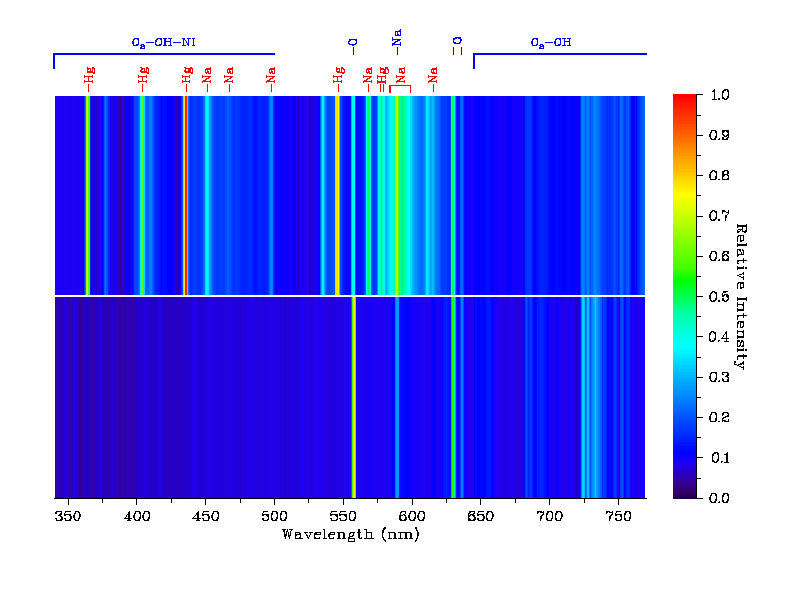 |
| Comparison between a night sky spectrum taken at Cerro Paranal-Chile during dark time (lower panel) and one taken in Asiago-Italy (upper panel). Light pollution is clearly visible in the form of Sodium and Mercury emission lines in the blue/visible part of the spectrum. |
| Night sky brightness data | FORS1 Night Sky Spectral Library |
| Not yet available | TAR file (17.5 Mb) Patat, F., 2008, Astronomy and Astrophysics 481, 575 |